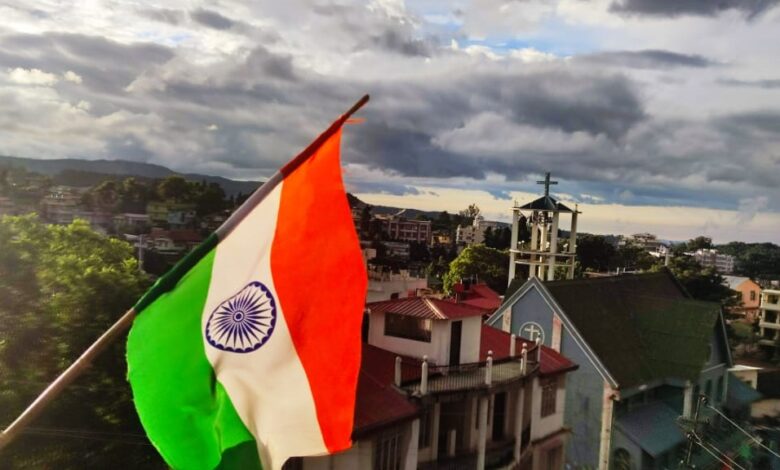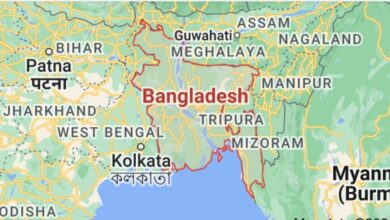Different histories of India and Manipur

Dr Marc Nongmaithem
Manipur, one of the states in India, has a very different history from the motherland. India is a vast and diverse country that was not unified as a single nation until 1947 when it gained independence from British rule. Manipur, on the other hand, was an independent kingdom for centuries before it was conquered by the British in 1891.
This difference in history has had a profound impact on the development of these two states. India is a young country that is still struggling to overcome the legacy of its colonial past. Manipur, on the other hand, has a longer history of statehood and self-governance.
India: A Young Country with a Colonial Past
India is a young country with a population of over 1.3 billion people. It is the second most populous country in the world, after China. India is also a diverse country, with over 100 different languages spoken.
India was not unified as a single nation until 1947 when it gained independence from British rule. The British had colonised India for over 200 years, and their rule had a profound impact on the country. The British imposed their own system of government and economy on India, and they also exploited India’s resources.
When India gained independence, it was faced with a number of challenges. The country was poor and underdeveloped, and it had a high illiteracy rate. India also had to deal with the legacy of religious and ethnic divisions that had been exacerbated by British rule.
Timeline of key events in the history of India:
1498: Portuguese explorer Vasco da Gama arrives in the Indian Subcontinent.
1600: The British East India Company is founded.
1757: The British defeated the French at the Battle of Plassey
1857: The Indian Rebellion, also known as the Sepoy Mutiny, takes place
1858: The British government takes direct control of India from the East India Company
1947: India gains independence from Britain
1950: India becomes a republic
1974: India conducts its first nuclear test
1991: India liberalized its economy
2014: Narendra Modi becomes Prime Minister of India
Manipur: An Independent Kingdom with a Long History
Manipur is a small state in northeastern India. It has a population of about 2.8 million. Manipur is a very diverse state, with over 30 different languages spoken.
Manipur was an independent kingdom for centuries before it was conquered by the British in 1891. The kingdom was ruled by a maharaja, who was assisted by a council of ministers. The people of Manipur enjoyed a high degree of autonomy and self-governance.
When the British conquered Manipur, they imposed their own system of government on the kingdom. The maharaja was stripped of most of his power and authority, and the British government took control of the kingdom’s finances and military. The people of Manipur were subjected to British rule for over 50 years.
Timeline of key events in the history of Manipur:
Early History
900 CE: Earliest recorded history of Manipur region
12th century: Kangleipak State develops under King Loiyumba with its first written constitution
18th century: Manipur under King Pamheiba sees the legendary burning of sacred scripture
British Rule
1762: Raja Jai Singh concluded the treaty with British to repel invasion of Burmans
1824: British again requested to expel Burmans
1891: Anglo-Manipur War; Manipur becomes a princely state under British rule
1917: Kuki hill tribes uprising leads to new system of government
1947: Manipur accedes to India
Post-Independence
1949: Manipur becomes a union territory of India
1969: Manipur becomes a state of India
1972: Manipur becomes a full constituent state of India
2023: Manipur is the scene of ethnic violence between Meitei and Kuki-Zomi people
This difference in history has had a profound impact on the development of these two states.
India is still struggling to overcome the legacy of its colonial past, while Manipur is a more self-sufficient state with a stronger sense of identity. However, both India and Manipur are facing a number of challenges, including poverty, unemployment, corruption and social unrest. Both are also working hard to build a better future for their people.
In Retrospect
India and Manipur stand as living embodiments of disparate historical journeys. India, still grappling with colonial vestiges, navigates the evolving aftermath of British supremacy. Manipur, steeped in the legacy of an autonomous kingdom, exudes an identity shaped by a longer history of self-determination. Notably, both entities traverse a challenging terrain marred by poverty, unemployment, and social turbulence, a shared struggle that underscores their shared humanity. As they tread forward, both states ardently strive to forge brighter destinies, anchoring their efforts in the lessons and experiences of their unique pasts.
(The author is a city-based businessman)




